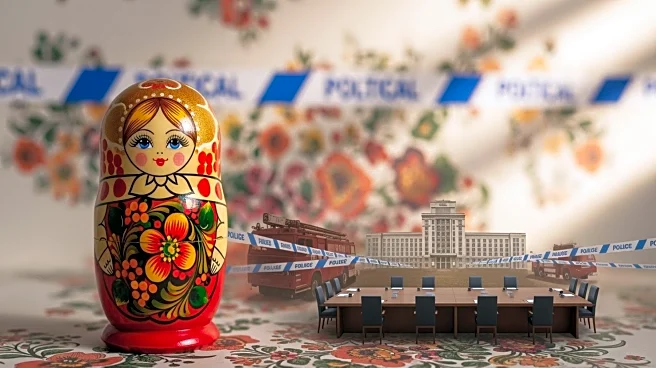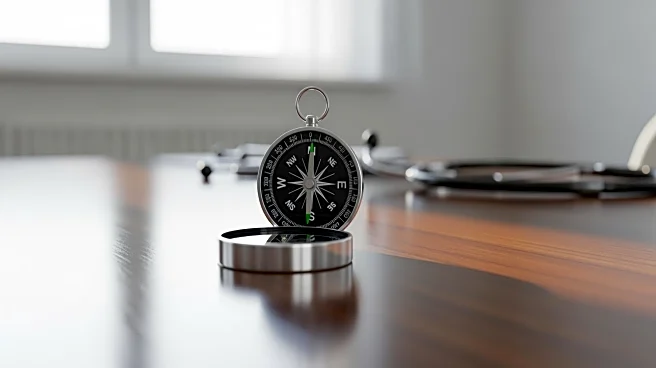What's Happening?
Julia Ioffe, a Russian American journalist, has released a new book titled 'Motherland: A Feminist History of Modern Russia, from Revolution to Autocracy.' The book, which is a finalist for the National
Book Award, offers a feminist perspective on the 20th-century history of Russia. It highlights the stories of influential but lesser-known women who played significant roles in shaping the Soviet Union. Ioffe's work diverges from the traditional focus on male figures like Vladimir Lenin and Joseph Stalin, instead spotlighting women such as Lenin's mistress Inessa Armand and Stalin's wife Nadezhda Alliluyeva. The book also delves into the personal history of Ioffe's family, who immigrated to the United States from Russia in 1990.
Why It's Important?
The book 'Motherland' is significant as it challenges the male-dominated narratives of Russian history by bringing to light the contributions and experiences of women. This perspective is crucial for understanding the broader social and political dynamics of the Soviet era, which have often been overlooked. By focusing on women's roles, Ioffe's work contributes to a more comprehensive understanding of history and highlights the ongoing struggle for gender equality. The book's feminist lens also resonates with contemporary discussions about women's rights and representation, making it relevant to current societal debates.
What's Next?
As 'Motherland' gains attention, it may inspire further scholarly work and public interest in the roles women have played in shaping historical narratives. The book's reception could lead to more discussions about the importance of including diverse perspectives in historical accounts. Additionally, it may encourage other historians and writers to explore similar themes in different contexts, potentially leading to a broader reevaluation of historical narratives worldwide.
Beyond the Headlines
Ioffe's exploration of Russian women's history also touches on broader themes of identity, resilience, and the impact of political ideologies on personal lives. The book examines the contradictions faced by women in Soviet Russia, who were granted certain rights and opportunities but also faced systemic challenges. This duality reflects broader societal tensions and highlights the complex interplay between individual agency and structural forces. 'Motherland' thus offers insights not only into Russian history but also into the universal struggles for gender equality and social justice.








